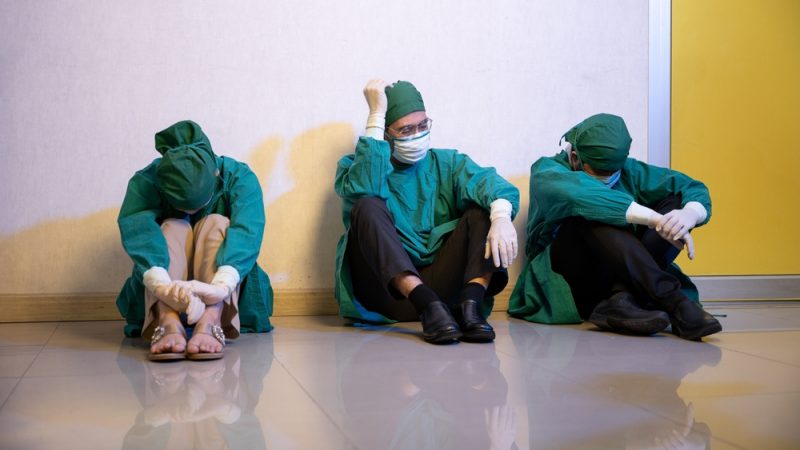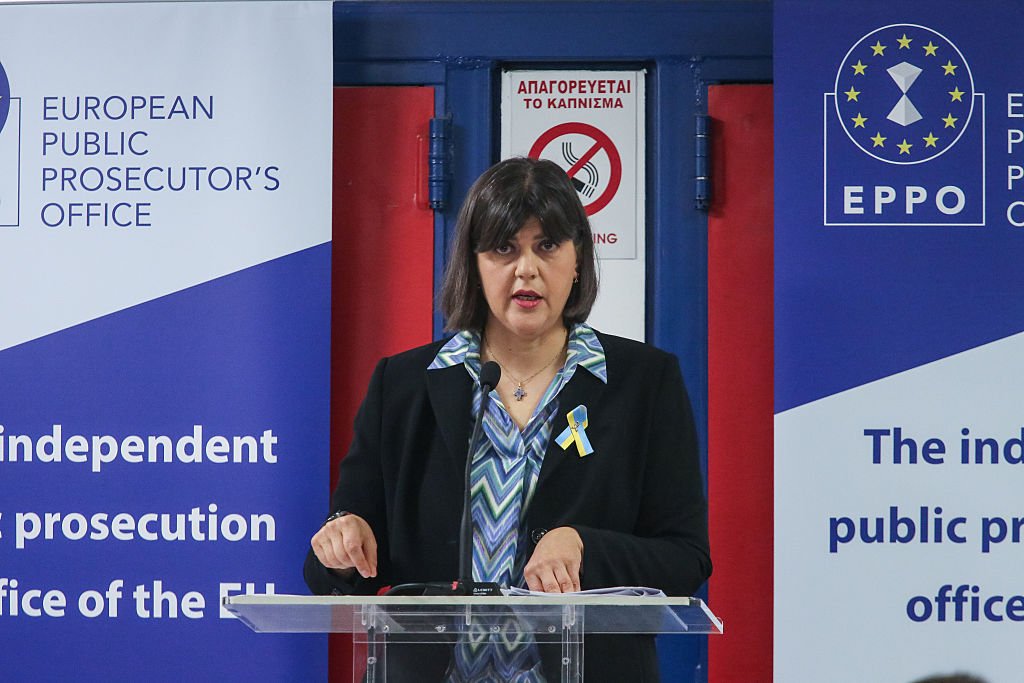Healthworkers’ mental well-being needs more attention, MEPs say
Source: EURACTIV.com
The European Commission’s communication on mental health neglected the issue of intensive care professionals’ mental health, EU lawmakers and healthcare workers have said in a declaration, demanding that the issue be addressed in all EU legislation.
“To deliver the best possible care, a team needs to be in a good mental health condition”, Elie Azoulay, president of the European Society of Intensive Care Medicine (ESICM), told the third meeting of the European Parliament’s Intensive Care Interest Group in Strasbourg on Tuesday (11 July).
He cited Herbert Freudenberger, a psychologist who in the 1970s coined the term ‘burnout’. Azoulay explained that when observing the professionals caring for people with cancer or AIDS, frontline workers in general, “it appeared very clearly that those people were burning from the inside”.
The interest group considers that mental health should be addressed in every legislation following a “mental health in all policies strategy”, as they wrote in a declaration that will be sent to the European Commission and the health ministers of the 27 Member States.
Finnish Christian Democrat MEP Sirpa Pietikäinen said that while welcoming the Commission’s communication on mental health published on 7 June, it lacks emphasis on improving the work-life balance and its mental health risks.
The communication issued by the Commission reads that “member states are also encouraged to raise awareness of mental health issues among professionals and develop and implement policies and best practices so that we can strengthen the resilience of essential workers”, which according to the interest group is not enough.
The declaration also asks for a specific name and definition of Burnout Syndrome that would apply concretely to healthcare professionals in intensive care units and their particular working environment.
The situation of healthcare workers in Europe is increasingly worrying because of challenging working conditions, shortages of the workforce, insufficient resources, and in some cases even physical and verbal aggression.
The World Health Organisation (WHO) Europe has already warned about expected healthcare worker shortages, aggravated by ageing staff and declining mental health of the population.
Also as a consequence, during the past year, Europe has seen a number of strikes among healthcare workers – in France, Germany, Ireland, Spain, and the UK, among others – with more protests planned for this year.
Focusing on prevention
Marianne Takki from the Commission’s DG SANTE recognised in the same meeting that while it is true that there are individual risk factors for mental health issues, in the case of essential workers, it is also possible to talk about group risk factors that should be considered in a more “holistic way”.
“The next crisis is on its way, there are always new ones coming. So now is the time to really develop and care, to feel the resilience of the medical community,” she said.
Aiming for prevention, ESICM is developing a project financed by the Commission to be able to detect those professionals at risk of burnout through machine learning,
The idea is to create an algorithm using data from clinical trials that healthcare professionals will complete, which will categorise them into different groups depending on the risk.
They will then be able to receive a personalised approach, with specific materials and strategies to better manage their situation.
Azoulay told EURACTIV that while currently it is only being developed to target ICU workers, the idea is to expand to different specialities. The project is expected to be operational in 18 months.
Harder for women
The healthcare sector is dominated by women. During the worst months of the COVID-19 pandemic in 2020, women held the majority (78%) of health jobs in all EU countries, varying from 61% in Greece to more than 90% in Estonia and Latvia.
Moreover, according to Czech Socialist MEP Radka Maxová, women on average face additional responsibilities outside the workplace, such as caring for children and elderly relatives.
“The burdens of work-life balance, societal expectation, and gender norms often fall disproportionately on their shoulders, leading to additional stress and emotional strain”, she added.
The WHO report found that up to 80% of nurses in some countries reported mental health issues following the pandemic, and “as many as nine out of 10 nurses had declared their intention to quit their jobs”.
To avoid getting to a place where stress management is already difficult to handle, Maxová insisted that preventive measures and a supportive work environment should be prioritised.
[Edited by Giedrė Peseckytė/Zoran Radosavljevic]
Read more with EURACTIV
The original article: belongs to EURACTIV.com .







